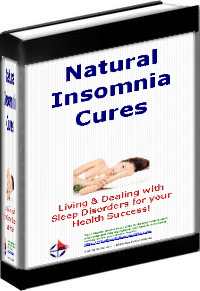What is a Sleep IQ Test?

 A health article about Sleep IQ Test from
A health article about Sleep IQ Test from
Daily Sleep Requirements about sleep Problems & nutritional \Self Care Strategies
The following true or false statements test what you know about sleep.
Be sure to discuss the answers with your healthcare provider.
1. Sleep is a time when your body and brain shut down for rest and relaxation.
True | False
2. If you regularly doze off unintentionally during the day, you may need more than just a good night's sleep.
True | False
3.If you snore loudly and persistently at night and are sleepy during the day, you may have a sleep disorder.
True | False
4.Opening the car window or turning the radio up will keep the drowsy driver awake.
True | False
5.The primary cause of insomnia is worry.
True | False
6. One cause of not getting enough sleep is restless legs syndrome.
True | False
7.People need less sleep as they grow older.
True | False
8.Narcolepsy is a sleep disorder marked by "sleep attacks."
True | False
9.The body has a natural ability to adjust to different sleep schedules, such as working different shifts or traveling through multiple time zones quickly.
True | False
10.More people doze off at the wheel of a car in the early morning or mid-afternoon than in the evening.
True | False
Answers to the Sleep I.Q. quiz
1. False.
Although it is a time when your body rests and restores its energy levels, sleep is an active state that affects both your physical and mental well-being Adequate restful sleep, like diet and exercise, is critical to good health. Insufficient restful sleep can result in mental and physical health problems and possibly premature death.
2. True.
Many people doze off unintentionally during the day despite getting their usual night of sleep. This could be a sign of a sleep disorder. Approximately 40 million Americans suffer from sleep disorders, including sleep apnea, insomnia, narcolepsy, and restless legs syndrome. An untreated sleep disorder can reduce your daytime productivity, increase your risk of accidents, and put you at risk for illness and even early death.
3. True
Persistent loud snoring at night and daytime sleepiness are the main symptoms of a common and serious sleep disorder, sleep apnea. Another symptom is frequent long pauses in breathing during sleep, followed by choking and gasping for breath. People with sleep apnea don't get enough restful sleep, and their daytime performance is often seriously affected. Sleep apnea may also lead to hypertension, heart disease, heart attack, and stroke. However, it can be treated, and the sleep apnea patient can live a normal life.
4. False.
Opening the car window or turning the radio up may arouse a drowsy driver briefly, but this won't keep that person alert behind the wheel. Even mild drowsiness is enough to reduce concentration and reaction time. The sleep-deprived driver may nod off for a couple seconds at a time without even knowing it--enough time to kill himself or someone else. It has been estimated that drowsy driving may account for an average of 56,000 reported accidents each year--claiming more than 1,500 lives.
5. False.
Insomnia has many different causes, including physical and mental conditions and stress. Insomnia is the perception that you don't get enough sleep because you can't fall asleep or stay asleep or get back to sleep once you've awakened during the night. It affects people of all ages, usually for just an occasional night or two, but sometimes for weeks, months, or even years. Because insomnia can become a chronic problem, it is important to get it diagnosed and treated if it persists for more than a month.
6. True.
Restless legs syndrome (RLS) is a medical condition distinguished by tingling sensations in the legs--and sometimes the arms--while sitting or lying still, especially at bedtime. The person with RLS needs to stretch or move the legs constantly to try to relieve these uncomfortable or painful symptoms. As a result, he or she has difficulty falling asleep or staying asleep and usually feels extremely sleepy and unable to function fully during the day. Good sleep habits and medication can help the person with RLS.
7. False.
As we get older, we don't need less sleep, but we often get less sleep. That's because our ability to sleep for long periods of time and to get into the deep restful stages of sleep decreases with age. Older people have more fragile sleep and are more easily disturbed by light, noise, and pain. They also may have medical conditions that contribute to sleep problems. Going to bed at the same time every night and getting up at the same time every morning, getting exposure to natural outdoor light during the day, and sleeping in a cool, dark, quiet place at night may help.
8. TRUE.
People with narcolepsy fall asleep uncontrollably--at any time of the day, in all types of situations--regardless of the amount or quality of sleep they've had the night before. Narcolepsy is characterized by these "sleep attacks," as well as by daytime sleepiness, episodes of muscle weakness or paralysis, and disrupted nighttime sleep. Although there is no known cure, medications and behavioral treatments can control symptoms, and people with narcolepsy can live normal lives.
9. FALSE.
The human body's biological clock programs each person to feel sleepy during the nighttime hours and to be active during the daylight hours. So people who work the night shift and try to sleep during the day are constantly fighting their biological clocks. This puts them at risk of error and accident at work and of disturbed sleep. The same is true for people who travel through multiple time zones quickly; they get "jet lag" because they cannot maintain a regular sleep-wake schedule. Sleeping during the day in a dark, quiet bedroom and getting exposure to sufficient bright light at the right time can help improve daytime alertness.
10. TRUE.
Our bodies are programmed by our biological clock to experience two natural periods of sleepiness during the 24-hour day (regardless of the amount of sleep we've had in the previous 24 hours). The primary period is between about midnight and 7:00 a.m. A second period of less intense sleepiness is in the mid-afternoon, between about 1:00 and 3:00. This means that we are more at risk of falling asleep at the wheel at these times than in the evening--especially if we haven't been getting enough sleep.
 Free Report Reveals Natural Insomnia Cures:
Free Report Reveals Natural Insomnia Cures:
Living & Dealing with Sleep Disorders for your Health Success!
Free Health Book.
This report reveals the most common sleep disorders like sleep apnea, snoring, its affects on individuals and the remedies.
Click the link above or book cover to get your free Report & eCourse today!
sleep disorders
Good quality sleep is a habit. If you make the changes above, don’t expect changes in your sleep pattern to occur overnight, give it time. And be forgiving of yourself. Nothing prevents a good nights sleep more than the increased sense of annoyance at not being able to go to sleep. So quit trying, get up and do something relaxing.

to “Your Health Success”
our monthly F’R’E’E’ Newsletter
Back to Top of Sleep IQ Test page
Subscribe to “Your Health Success” newsletter
Terms of Use |
Privacy Policy |
Disclaimer |
Site Map

============================================================================
SITE DISCLAIMER: Do these products “cure” anything? Of course not… but it stands to reason that if you cleanse your body and feed it the finest nutrition available, giving it everything it needs in balance, on a daily basis, that your body will do what nature intended, and give you the best possible chance to fend off sickness and disease. This Sleep IQ Test information is not presented by a medical practitioner and is for educational and informational purposes only. The Sleep IQ Test content is not intended to be a substitute for professional medical advice, diagnosis, or treatment. Always seek the advice of your physician or other qualified health provider with any Sleep IQ Test questions you may have regarding a medical condition. Never disregard professional medical advice or delay in seeking it because of something you have read.
The Sleep IQ Test resources on this site are not intended to be a substitute for professional advice. While all attempts have been made to verify Sleep IQ Test information provided in this publication, neither the author nor the publisher assumes any responsibility for errors, omissions or contrary interpretation of the web site Sleep IQ Test subject matter herein. The site Sleep IQ Test contents are solely the opinion of the authors and should not be considered as a form of advice, direction and/or recommendation of any kind. If expert advice or counseling is needed, services of a competent professional should be sought. The author and the Publisher assume no responsibility or liability and specifically disclaim any warranty, express or implied for any Sleep IQ Test products or services mentioned, or any techniques or Sleep IQ Test practices described.
The purchaser or reader of thi Sleep IQ Test s publication assumes responsibility for the use of these materials and information. Neither the author nor the Publisher assumes any responsibility or liability whatsoever on the behalf of any purchaser or reader of these Sleep IQ Test materials. There is no guarantee of validity of accuracy. Any perceived slight of specific people or organizations is unintentional. This website and its creators are not responsible for the content of any sites linked to. Since natural and/or dietary supplements are not FDA approved they must be accompanied by a two-part disclaimer on the product label: that the statement has not been evaluated by FDA and that the product is not intended to "diagnose, treat, cure or prevent any disease."
============================================================================
Back to Top of page



